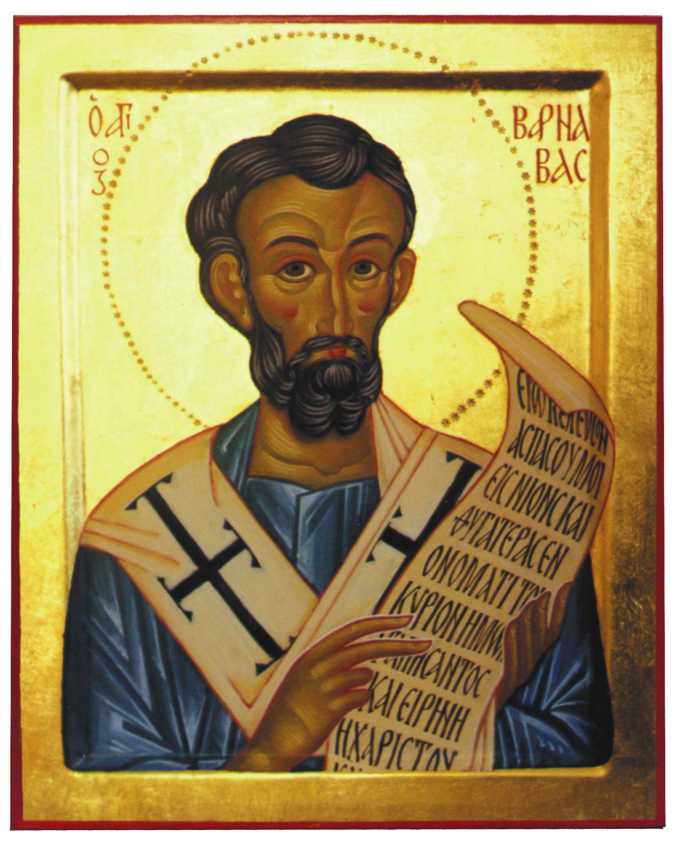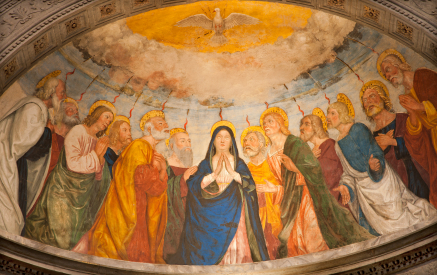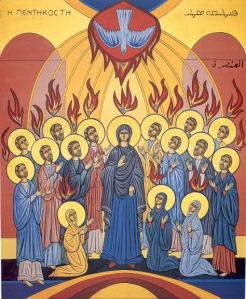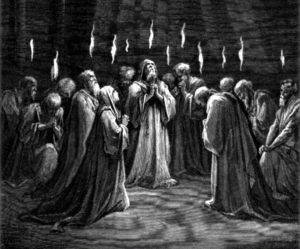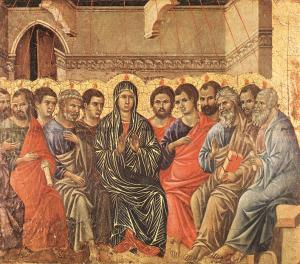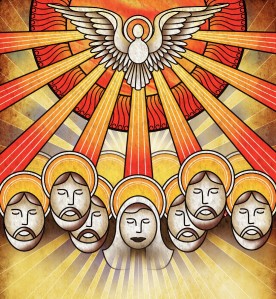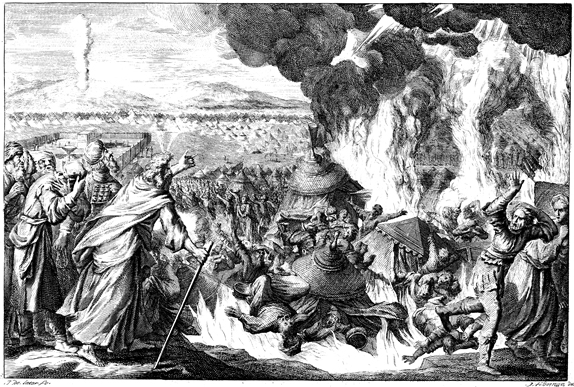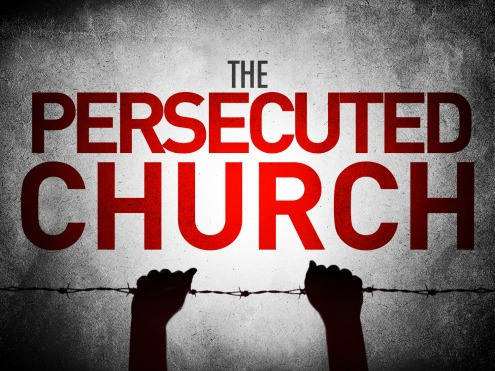Matthew 28:16-20
June 15, 2014
Note: below is the audio and the text for the sermon from Sunday. You can listen to it by clicking the embedded player below
or downloading it at the link here:
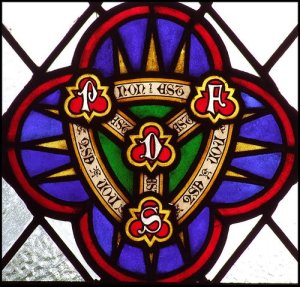 In the name of the Father and of the Son and of the Holy Spirit. Amen.
In the name of the Father and of the Son and of the Holy Spirit. Amen.
The text for the sermon this morning is from the Gospel just read, Matthew 28. “Therefore go and make disciples of all nations, baptizing them in the name of the Father and of the Son and of the Holy Spirit, and teaching them to obey everything I have commanded of you.” This is our text.
These are the last lines of Matthew’s Gospel. Otherwise known as the Great Commission, Jesus mandates his eleven disciples to make more disciples just before he ascended into heaven. This text is full of meaning and instruction. A lifetime of discipleship would not exhaust the words of our Lord to his disciples. And it is perhaps especially fitting that this text was chosen as the Gospel reading on Holy Trinity Sunday, the first Sunday after Pentecost. Sitting at the point in the church year in between readings that focus us on the life, death, and resurrection of Jesus, it is fitting that Holy Trinity Sunday and this reading from Matthew start the church off on the second half of the year when readings call our attention to the teachings of Jesus and our life in Christ. What is a disciple? How do you make disciples? What is a disciple to do in order to be a true disciple. All this and more packed solidly into the Great Commission from Jesus. We’d better get started.
Now even if we nothing of Jesus of Nazareth, we should know a great deal more about him simply by reading this passage of scripture. The eleven, there are eleven now, 12 minus one, had gone out to the mountain where Jesus had told the women he would be back in verse 7. And when they saw him, they worshipped him, but some doubted. Just this line tells us so much about faith, the early church, and one simple fact. Jesus is divine. Jesus is God. Jesus is the Lord. Who was Jesus for the past three years? A traveling Jewish prophet with a group of disciples from Galilee. They were certainly not the sort of folks you would expect to take over the world. Only one thing can explain the radical shift from traveling group of disciples to leaders of a world-wide missionary church in a matter of a month and that is the resurrection of Jesus from the dead and this passage and Pentecost. The eleven had been down in Judea, other evangelists record some of Jesus’ post-resurrection appearances in Judea, but Matthew records this one in Galilee where it all began for them. The eleven would no longer be following a penniless preacher; they would be going to all nations to make fellow disciples of Jesus. That in itself is amazing and more about that in a minute. But first, what’s a disciple? Where to we get that word? Discipulus, Latin for pupil, and from discere, Latin for to teach. What then ultimately is a disciple? A student. In the old days, it meant a follower, a groupie if you will but in the academic sense. Plato was a disciple of Socrates and Aristotle, of Plato. And Jesus says make more disciples. More people from every nation should follow after me and hear my preaching through you and receive my healing through you and come to a knowledge of faith and salvation and thus accomplish the will of my Father who sent me, through you. Who are disciples today? You are. We all are.
Some people would say that Jesus didn’t really say this. They say it’s a later addition to the text by the early church. But I say to you, if Jesus didn’t really say it, I have no business standing here before you today and we’d all be better off at home reading the Sunday paper or gardening. Because if Jesus didn’t command it, then I have no reason to try to make disciples. Jesus said, “All authority in heaven and on earth has been given to me.” That same authority is the authority by which I stand before you this morning confident that in my attempts this morning to teach everything Jesus has commanded us, I am carrying out our Lord’s desire to continue to make you his disciples.
How is the Christian church to make disciples? What does Jesus command? Baptize and teach; that’s how you make a disciple. Baptism without teaching is not what Jesus commands. To be baptized and then to never darken the door of a church again is not what Jesus is mandating. And yet, teaching without baptism is another way to get it wrong. One’s discipleship is in question if one rejects the Lord’s command to be baptized. This is simple. Make disciples by baptizing and teaching. And the Christian church has never not known baptism. Acts chapter 2 on the day of Pentecost after Peter’s preaching to the masses gathered there they ask, what shall we do, then brothers? And Peter’s response is “repent and be baptized.” Why? Because Jesus said so. And into what shall we be baptized?
This is a good question because here is the heart of the passage before us. “Baptize in the name of the Father and of the Son and of the Holy Spirit.” Can you quickly scan scripture in your mind and think of a more forceful proclamation of the divinity of Jesus Christ? Here the Father, Son and Holy Spirit are listed as co-equal and the Spirit as a separate person also. Trinitarian theology is not a construct of the early Christian church; it is at the heart of the scriptures and the revelation of our God about himself to us. Three divine persons but of the same divine essence. Baptize into the name, singular, not the names, plural. There are not three gods but one God. “Hear O Israel, the Lord our God is one.” Baptize into the name of the Father, Son and Holy Spirit, not in the name of an impersonal divine power or force. God bestows His name on us. Just as the great “I Am,” bestowed his name on Israel and gave it to them as a gift that He might be known by name. Here is the pure gift of God, that he bestows on us his name and we can know him as he was have us know him.
Pick up a grasshopper in your hand and imagine what that grasshopper thinks. One, that your power holds him fast in your grip and two, the instinctive reaction that you can crush and destroy him at will. Think about this for a minute, what would we know about God if not for the revelation of his name to us? He would be the God of tsunamis, and earthquakes and cyclones and rainbows. We wouldn’t know much more than a capricious God, angry most of the time and in a good mood sometimes when the stars twinkle at night. The power of God is unmistakable. All people have this little voice, this conscience that says, we ought to. We ought to make something of ourselves. We are answerable to this Creator whose voice we hear that we ought and we have every reason to be afraid of that ultimate voice.
Would you really kill the grasshopper just for the fun of it? Of course not. But how will that grasshopper know your true nature, your kind heart toward it? So too the question about what is God really like? And the first and immediate and I would say only satisfactory answer is Jesus of Nazareth. Here was a man who claimed to be God, said things only God can say, did things only God can do and accepted worship that belongs only to God. The only possibilities says CS Lewis are “Lord, Lunatic or Liar.” He who is God from all eternity was made flesh and dwelled among us. In Jesus, God was seen and heard and touched. Here is the answer to what God is like. God became a man, went to the cross, and suffered the agony of hell as sin’s punishment. He died for us who were heretofore mere grasshoppers in the hand. He died for sinners. He died for you and me.
There is no greater love imaginable, and that my friends in Christ, is what God is like, slow to anger and abounding in steadfast love. Forgiven we are no longer afraid of God. We know him as Father because of our status as his children through our brother Jesus.
When we come to know those things we are being made into disciples. Amen.
In the name of the Father and of the Son and of the Holy Spirit. Amen.
